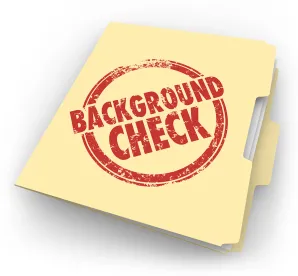Employment background checks help employers hire individuals with integrity whom they can trust, and who do not present a risk to the business, other employees, or the customers and clients that the business serves. Buyers in transactions may view target businesses that run background checks as lower risk for employee performance and retention issues. Background checks also constitute an important area for employment diligence in transactions because an employer or background check vendor’s failure to follow the hypertechnical disclosure and authorization requirements of the Fair Credit Reporting Act (FCRA) and other applicable state and local laws risks potentially material class action exposure and $1,000 penalties per violation. This article explores mitigation strategies that buyers may use in due diligence to identify and valuate potential FCRA exposure.
IN DEPTH
THE LAW
The FCRA requires that prior to procuring a background check on a job applicant, employers provide job applicants with a clear and conspicuous disclosure, made in writing and in a document consisting solely of the disclosure, regarding the fact of the contemplated background check. The FCRA also requires that employers obtain the job applicant’s authorization for the background check, which may be included in the same written disclosure.
Plaintiffs may recover actual damages for negligent violations of the FCRA, or statutory damages of $100 to $1,000 per each willful violation of the FCRA. Courts have found that certain provisions in disclosure forms (for example, liability waivers or state-specific disclosures) are per se violations of the FCRA automatically entitling plaintiffs to statutory damages. Because statutory damages do not require proof of actual injuries, these types of claims are low-hanging fruit for plaintiffs’ lawyers that can point to a noncompliant disclosure form as proof of a common unlawful policy applicable to a class of individuals and, on this basis, file a class action. Statutory damages on a class basis can quickly add up where a company has a practice of procuring hundreds or thousands of background checks annually.
POTENTIAL BACKGROUND CHECK PITFALLS
A California district court recently opined that FCRA disclosure forms should contain nothing more than a plain statement disclosing “that a consumer report may be obtained for employment purposes,” along with some concise explanation of what that phrase means. The court noted that a disclosure form could briefly describe what a “consumer report” entails, how it will be “obtained,” and for what type of “employment purposes” it may be used.
While these may sound like simple propositions, neither the courts nor the Federal Trade Commission (the administrative agency tasked with enforcing the FCRA) have provided clear guidance on the definition of “document that consists solely of the disclosure” (the stand-alone requirement) or “clear and conspicuous.” For this reason, it is no surprise that many employers may currently rely on disclosure forms that inadvertently include language constituting a per se violation of the FCRA.
The courts have, however, made clear that the following statements trigger statutory damages (and should be avoided as noted):
-
Liability Releases. FCRA disclosures should not include any language purporting to release any party from liability in connection with procuring the background checks, such as “I hereby release Employer . . . ,” “I waive . . . ” and “liability.”
-
State-Specific Disclosures. FCRA disclosures should not include state-specific notices or disclosures. These belong on a separate document. Such notices include, for example, disclosures about the applicant’s rights to a consumer report if they live in the states of California, Minnesota and Washington. Some states’ notices must also be in their own stand-alone document and should not be combined with other state-specific disclosures.
Courts have also found statements regarding nondiscrimination in hiring, or general statements regarding the job applicant’s rights, as problematic in disclosure forms.
Buyers should confirm that the target’s human resources professionals understand and are trained in the FCRA’s disclosure requirements. In an unpublished 2022 California Court of Appeal opinion in Hebert v. Barnes & Noble, Inc., the court reversed the trial court’s order granting Barnes & Noble’s summary judgment motion on the issue of whether Barnes & Noble willfully violated the FCRA by including extraneous business-to-business language in its background check disclosure form, thereby allowing the claims to move forward on a class basis. Barnes & Noble inadvertently left a footnote in its disclosure form that was intended to be an internal disclaimer from its third-party background check vendor and published it in the live disclosure form that it provided to its job applicants for the following two years.
The court opined that a reasonable jury could find that Barnes & Noble willfully violated the FCRA based on the following:
-
The disclosure form at issue violated an unambiguous provision of the FCRA.
-
At least one of Barnes & Noble’s employees was aware of the extraneous information (the footnote) in the disclosure before the disclosure was displayed to job applicants.
-
Barnes & Noble may not have adequately trained its employees on FCRA compliance and Barnes & Noble’s person most knowledgeable admitted as much in their deposition.
-
Barnes & Noble may not have had a monitoring system in place to ensure that its disclosure complied with the FCRA.
MITIGATION STRATEGIES
FCRA class action litigation arising from employment background check disclosure forms has been increasing since 2017, when the US Court of Appeals for the Ninth Circuit found that liability waivers in disclosure forms were a violation of the FCRA as a matter of law. Plaintiffs’ lawyers continue to exploit this underdeveloped area of law. Employers that run background checks on applicants and employees continue to be a target for class action litigation, and representations and warranties insurers have made employment background check practices a focus of inquiry.
Buyers and their employment counsel should carefully review the following issues with respect to a target’s employment background check and hiring practices to assess this potentially material area of risk:
-
FCRA disclosure and authorization form (often provided by third-party vendors);
-
State-specific disclosures (including California, which has its own stand-alone form requirement);
-
Background check policies in employee handbooks and other stand-alone policies;
-
Offer letters (including for language making employment contingent on satisfactory passage of a background check);
-
Employment applications (to ensure that FCRA disclosures are separate and apart, including on a separate computer screen); and
-
Third-party vendor agreements with background check companies (to confirm existence of a strong indemnity clause favoring the employer).





 />i
/>i
